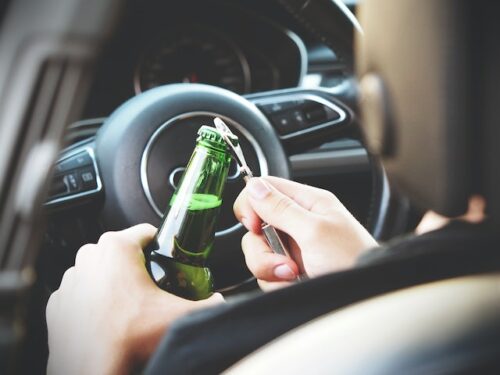
Across the country, drunk driving is the cause of tens of thousands of motor vehicle accidents every year. Though sober driving is always encouraged, some people may be unaware of the seriousness of driving under the influence. Are you the victim of a drunk driving accident? Read more about drunk driving facts and how you can file a liability claim with our New Jersey drunk driving accident lawyers if harmed by a drunk driver. We are here to help!
What are the drunk driving laws in New Jersey?
The level of alcoholic intoxication is determined by the amount of alcohol in a person’s blood, commonly known as Blood Alcohol Concentration (BAC). In the state of New Jersey, a person is considered guilty of drunk driving if their BAC is 0.08 or higher. However, drivers can still be charged for driving under the influence even if their BAC is lower. If any amount of alcohol hinders a person’s driving ability, they can be convicted of drunk driving.
How does alcohol consumption negatively impact drivers?
While long-term alcohol consumption can negatively impact health, the immediate effects are far more dangerous – both to the drinker and to the general public. The most common effects of alcohol consumption are:
- Poor judgment and decision-making: Not only does alcohol make clear thinking difficult, but it also can increase risk-taking behaviors.
- Impaired vision: Alcohol actually relaxes muscles around the eyes, which leads to blurred vision and a decrease in peripheral vision.
- Decreased coordination: Alcohol affects the part of the brain that controls motor skills, which slows reflexes and reaction time.
- Inability to concentrate: A person may lose the ability to focus when under the influence.
The combination of these effects makes operating a motor vehicle highly challenging for anyone. Because of these impacts on a person’s brain, intoxicated drivers are at a much higher risk of causing an accident that could possibly injure others.
Who gets sued when a drunk driver causes an accident?
Of course, the drunk driver will face charges in the event of an accident. With New Jersey’s Dram Shop Law, there are some cases that a third party can be liable for the accident. For example, if the establishment served alcohol to a minor or to someone who was noticeably intoxicated, that establishment can be held liable for the drunk driving accident, along with the driver.
How can I sue for a drunk driving personal injury?
In New Jersey, the statute of limitations for personal injury claims is two years, meaning you have two years from the date of the accident to sue the drunk driver. In the event of a drunk driving accident, it’s important to file a police report for the accident and maintain hospital records showing the extent of your injuries. The driver’s BAC, which is usually administered by a breathalyzer, is crucial in filing a claim. Contact Rubenstein Berliner & Shinrod, LLC for help in filing a personal injury claim today!
